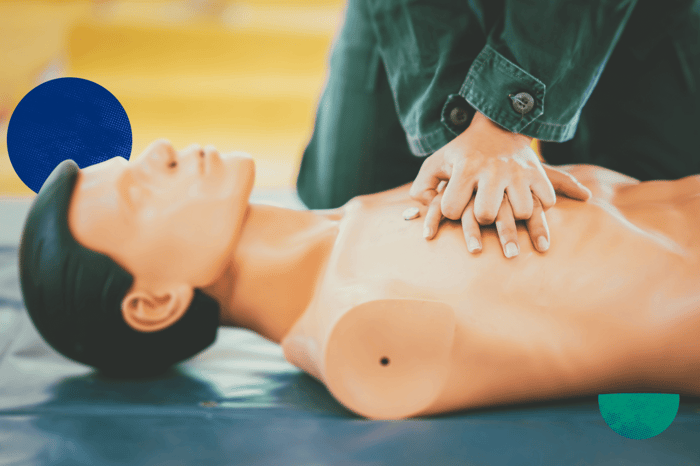If you’re thinking about a career in healthcare, it’s important not to overlook any of your options, especially nursing. Nursing can be a great career choice for those who want to help people and make a difference in their communities. Let’s take a closer look at some of the reasons you might consider becoming a nurse.
There's Never Been a Better Time to Become a Nurse
Nurses make up the largest section of the healthcare profession. Not only are registered nursing (RN) jobs on the rise, but related careers in healthcare support – like certified nursing assistants (CNAs) and licensed practical nurses (LPNs) – are also becoming more in demand. Healthcare institutions are relying more heavily on all levels of nurses to staff hospitals and care facilities. The size of our elderly population continues to increase as Americans are living longer than ever before. Couple that with the projection from the American Association of Colleges of Nursing that there will be a serious shortage of trained nurses, and that equals a large number of employment opportunities. And a career bonus? 98% of nurses are happy they chose their career.
Things to Consider When Mapping Out Nursing Career Paths
Pursuing a nursing career path takes planning and dedication. Here are some things to keep in mind when mapping out your healthcare career journey:
What is the Job Outlook for Nursing Career Paths?
Employment of registered nurses is projected to grow 6% from 2021 to 2031, according to the U.S. Bureau of Labor Statistics. About 203,200 openings for registered nurses are projected each year, on average, over the next decade. Job growth is expected across most types of healthcare settings, including hospitals and outpatient care centers that provide same-day services, such as chemotherapy, rehabilitation, and surgery. In addition, because many older people prefer to be treated at home or in residential care facilities, registered nurses will also be in demand in those settings. The median annual wage for registered nurses is around $77,600. The lowest 10% of RN’s earn less than $59,500 and the highest 10% earn more than $120,000.
Nursing Career Job Settings
The ongoing nursing shortage provides a wide variety of job settings and work environments beyond hospitals and doctor offices. Nurses also work in:
- Nursing homes, assisted living, and extended care centers
- Healthcare clinics
- Home healthcare providers
- Schools, colleges, and universities
- Government offices
- Military
Where Will a Nursing Career Path Take Me?
What are the nursing career paths available to you? There are so many directions you can go based on the degree program you select:
Certified Nursing Assistant (CNA)
To become a Certified Nursing Assistant, you need to obtain a CNA diploma or state-approved certificate, which is typically 4-12 weeks of training. A CNA usually works under the supervision of a Registered Nurse or Licensed Practical/Vocational Nurse — keep reading to learn more about these roles — and provides direct care to patients through personal, hands-on attention. Sample Job Duties:
- Help patients with daily tasks such as bathing and feeding
- Answer patient calls
- Clean patient rooms
- Responsible for recording patient information and reporting issues to a supervising nurse
Licensed Practical or Vocational Nurse (LPN or LVN)
Becoming an LPN or LVN requires earning an LPN/LVN diploma or state-approved certificate, which is typically a 12- to 18-month program. Depending on your goals, working as an LPN or LVN may be a good stepping stone to other positions in your nursing career, such as becoming a Registered Nurse (RN). This role can help you gain experience and learn more about whether you want to specialize in a certain type of care.
Sample Job Duties:
- Provide patients with basic care
- Record patient histories and symptoms
- Check and track vital signs
- Communicate with patients about their health concerns
- LPN/LVNs administer medication dependent on different state’s regulations
Registered Nurse (RN)
Becoming an RN requires either an Associate Degree in Nursing (ADN) or Associate of Science in Nursing (ASN), which is a 2-year program. You can also earn a Bachelor of Science in Nursing (BSN), which usually takes 4 years to complete. Many 2- and 4-year programs in the U.S. require you to pass the TEAS exam (Test of Essential Academic Skills) as part of the application process. Regardless of the degree you earn, everyone who wants to be an RN needs to successfully take the NCLEX-RN exam to earn their RN license.
Sample Job Duties:
- Coordinate patient care
- Evaluate and assess patient conditions
- Administer medication and treatment
- Develop patient care plans
- Assist doctors with exams and surgeries
- Educate patients
- Promote wellness
- Manage other nurses and LPN/LVNs
Advanced Practice Registered Nurse (APRN)
Advanced Practice Registered Nurses have earned a Master of Science in Nursing, which is typically a 2-year post-graduate program. APRNs are often primary care providers and serve at the forefront of providing crucial preventive care services and advising on public health issues.
Sample Job Duties:
- Diagnose and manage acute and chronic conditions
- Specialize in roles such as a Certified Registered Nurse Anesthetist, Certified Nurse Midwife, or Clinical Nurse Specialist
- Manage clinical trials and collect and analyze data
- Teach nursing courses
Nurse Practitioner (NP)
By 2025, it will be required for you to complete a Doctorate of Nursing Practice, which can take anywhere from 3- to 5-years to complete, in order to become an NP. Due to their extensive education and training, NPs have more authority than RNs. NPs may work independently or alongside doctors within a medical practice.
Sample Job Duties:
- Primary care providers to patients
- Diagnose illnesses
- Prescribe medication
- Educate patients about preventive care
Certifications & Exams: TEAS & NCLEX-RN
When applying for nursing school in the U.S., many institutions will require you to pass the TEAS exam (Test of Essential Academic Skills). This standardized test covers four main areas: reading, math, science, and English and language usage. Schools use the TEAS exam to assess what a prospective student’s academic potential may be in nursing school. Be sure to check how your chosen nursing program defines passing. For example, some schools accept students with a TEAS score of 65%, but this would not be considered for admission at other programs. TEAS EXAM INFO Regardless of the type of nursing degree program you choose, anyone who wants to become an RN or higher in the U.S. or Canada must pass the NCLEX-RN (National Council Licensure Examination for Registered Nurses). The National Council of State Boards of Nursing reports that about 88% of U.S.-educated NCLEX-RN takers pass the exam on their first attempt. NCLEX-RN EXAM INFO
What Classes Should I Take to Get Started On My Nursing Career Path?
The classes you may need to take to prepare to become a nurse can depend on whether you’re just starting out or you’re finishing up more specific requirements. If you’re just starting on your degree, you might need to focus on nursing school admission requirements, such as Anatomy & Physiology I and English Composition. If you’re further along in your education, you can turn your focus to more specialized courses, like Medical Terminology. StraighterLine has a wide range of general education and health sciences courses that can help you fulfill your requirements and keep you on track for your nursing career path. EXPLORE COURSES
Fast Track Your Nursing Career with StraighterLine
Earn your Associate of Science in Nursing (ASN) or Bachelor of Science in Nursing (BSN) on your timeline. Use StraighterLine to take your admissions requirements, prerequisites, or core curriculum courses then easily transfer them to any of our partner schools or through the ACE CREDIT service to over 2,000 colleges and universities worldwide.












